Writing Worksheets Activities With Answers for Ages 3-6
8 filtered results
-
From - To
Welcome to our collection of engaging writing worksheet activities designed for children ages 3-6! These worksheets are tailored to foster early writing skills, featuring fun exercises that encourage creativity and expression. With clear answer keys, caregivers and educators can easily assess progress and provide support. Activities include tracing letters, forming simple words, and completing sentences, all aimed at building fundamental literacy skills in a playful environment. Perfect for home or classroom use, our resources make learning to write enjoyable and effective. Explore our worksheets today and inspire young learners to embark on their writing journey!
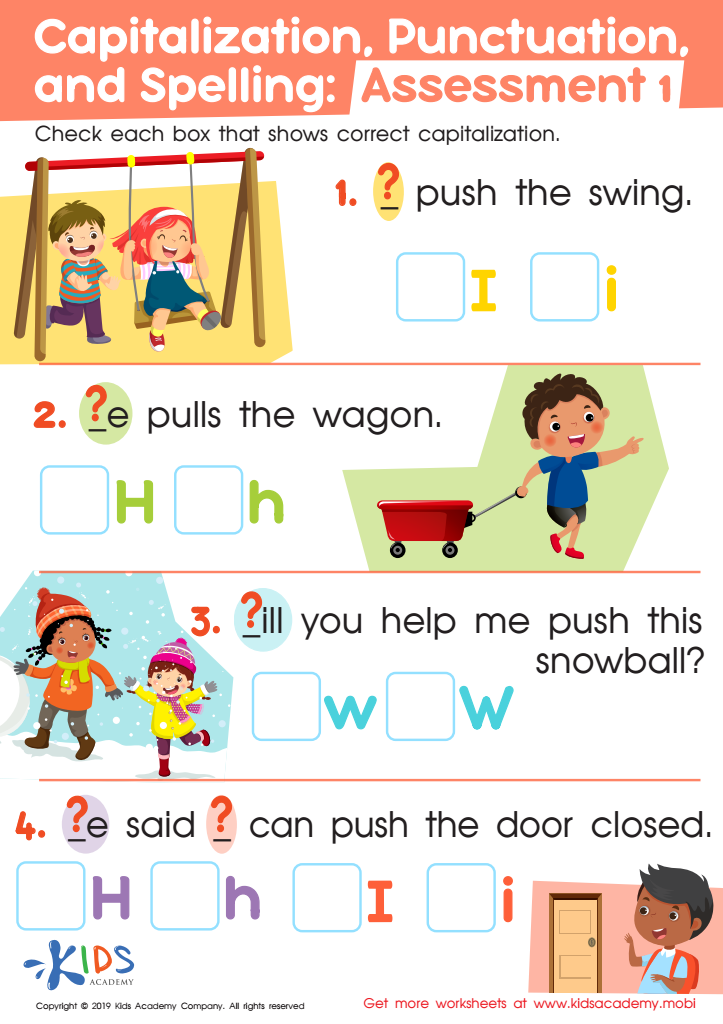

Capitalization. Punctuation. Spelling: Assessment 1 Worksheet
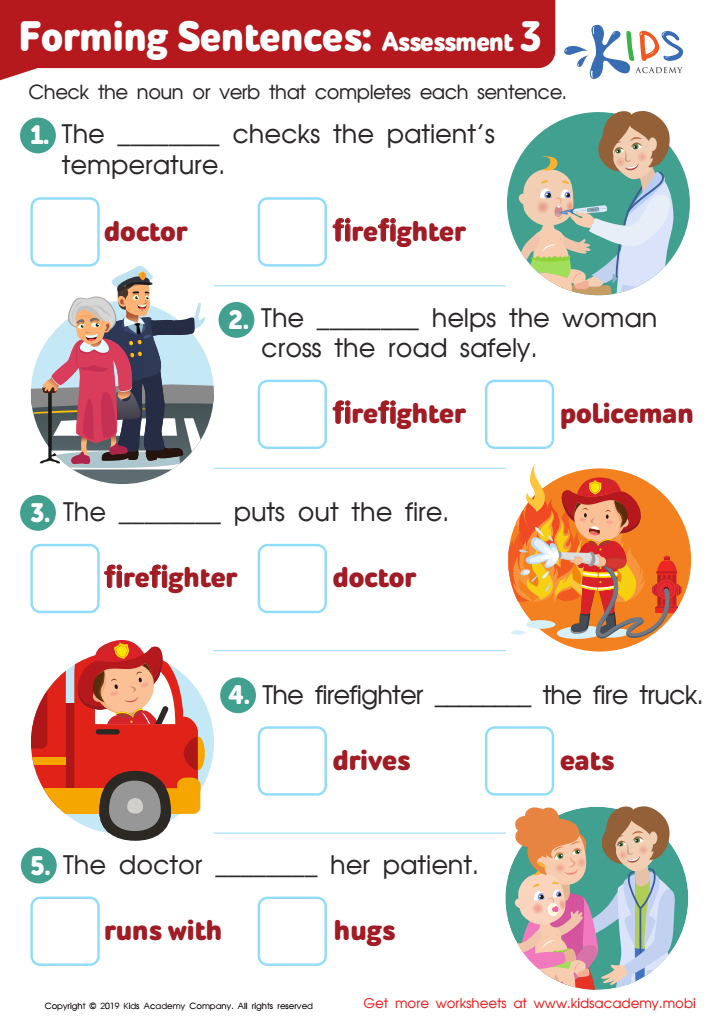

Forming Sentences: Assessment 3 Worksheet
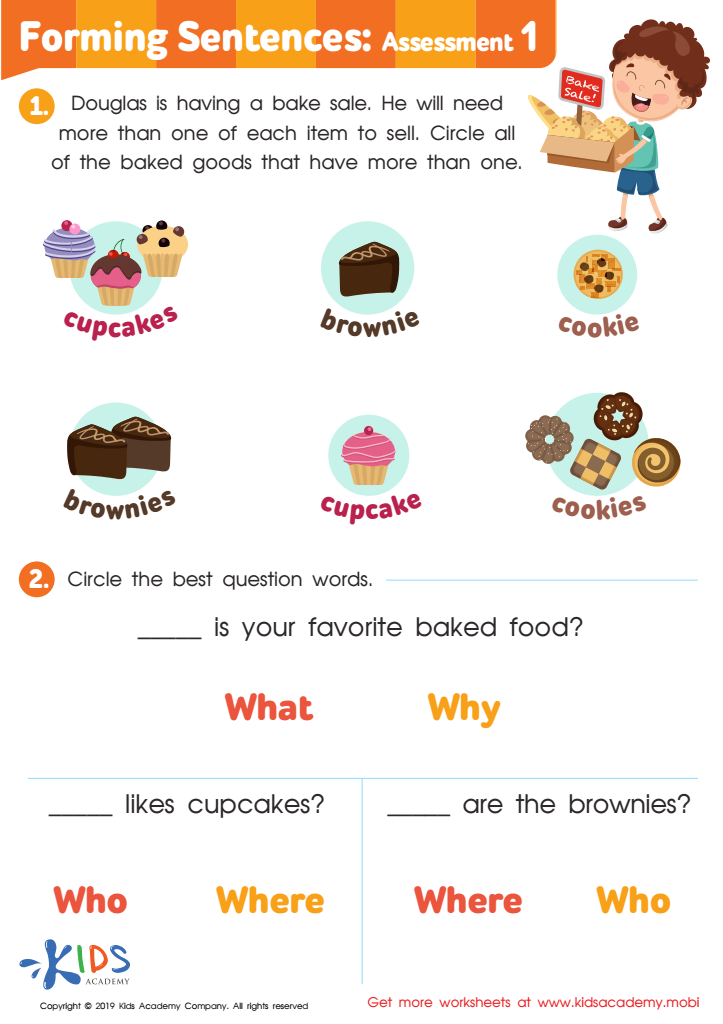

Forming Sentences: Assessment 1 Worksheet
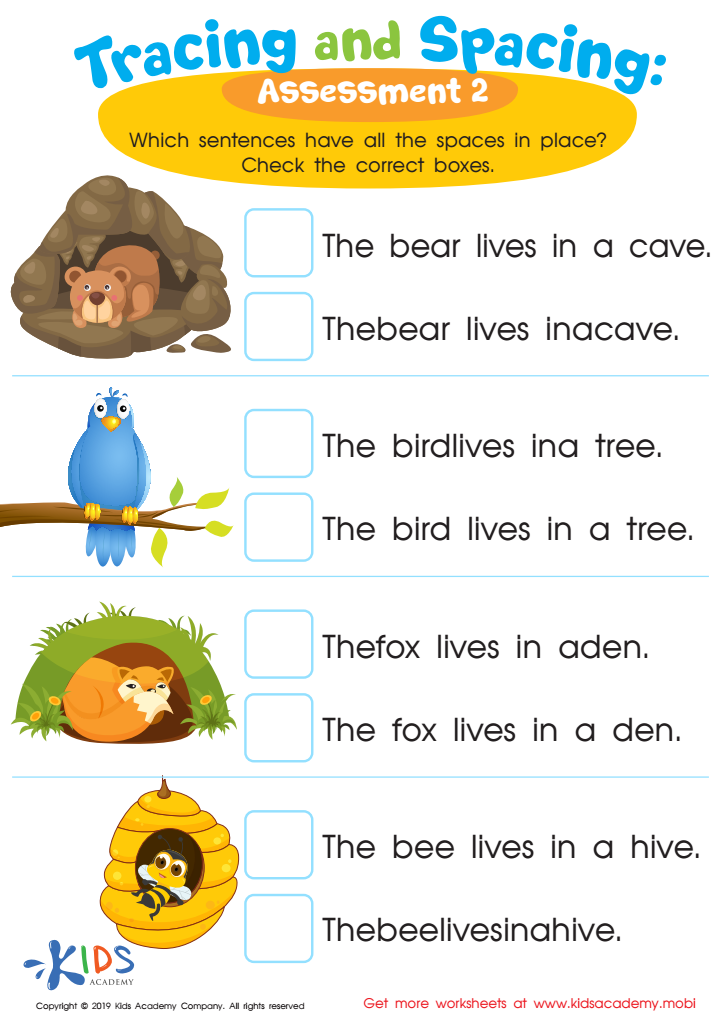

Tracing and Spacing: Assessment 2 Worksheet
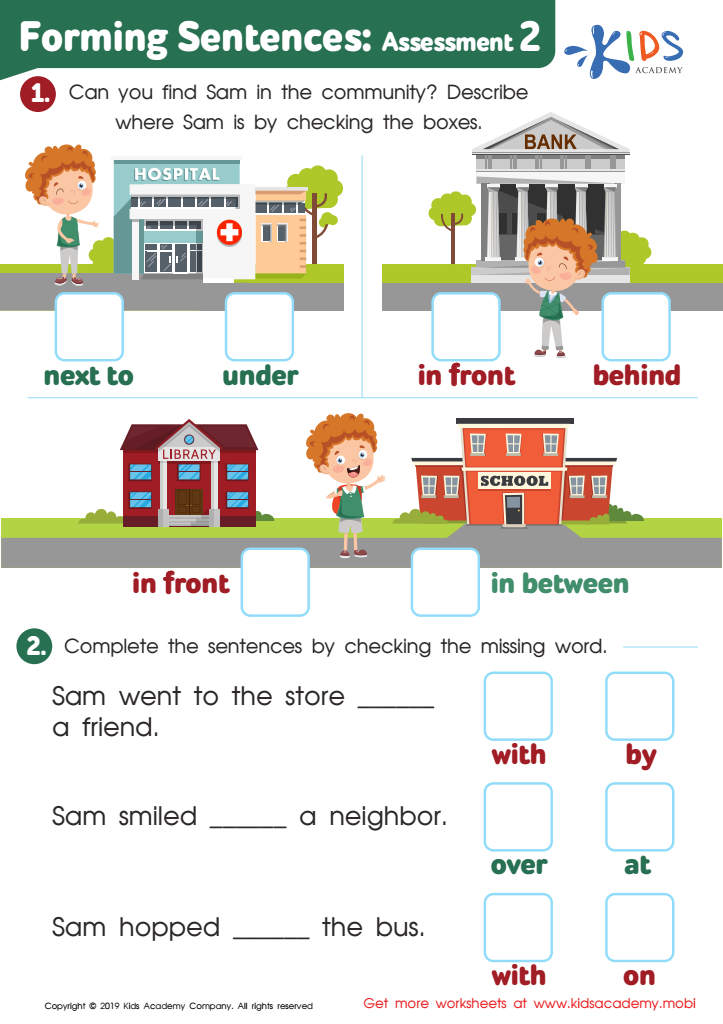

Forming Sentences: Assessment 2 Worksheet
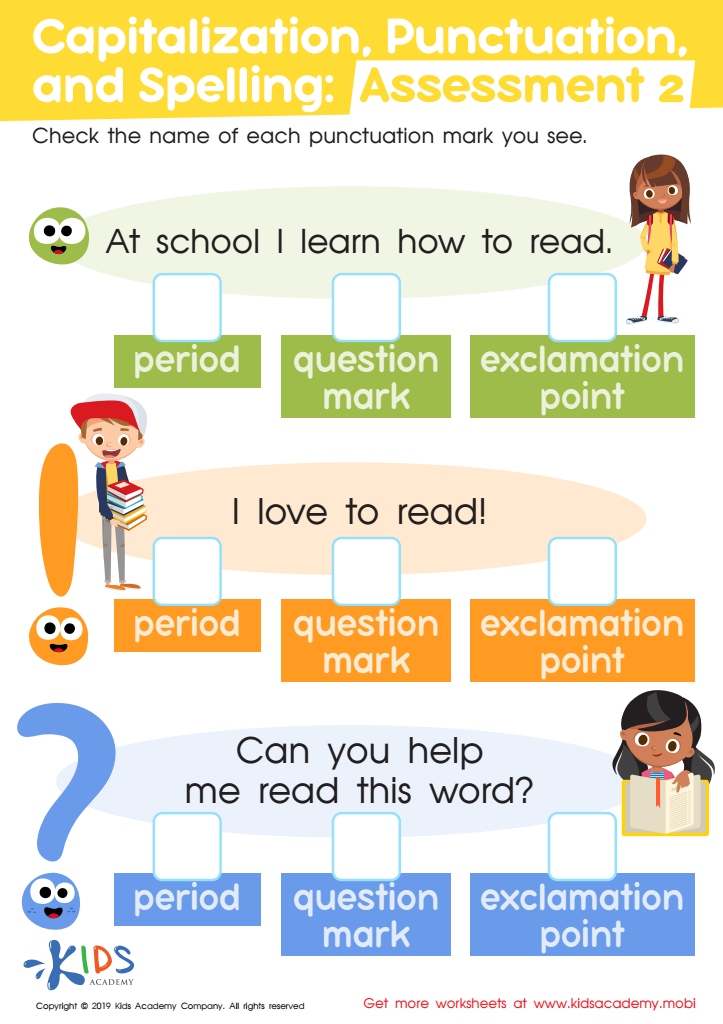

Capitalization. Punctuation. Spelling: Assessment 2 Worksheet
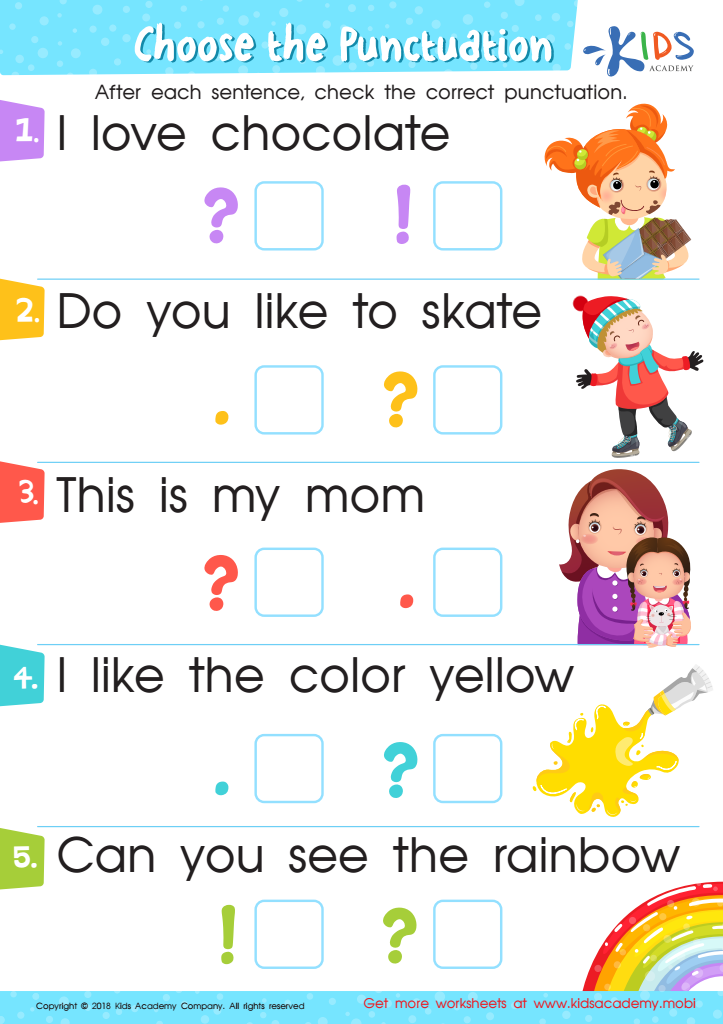

Choose the Punctuation: Assessment Worksheet
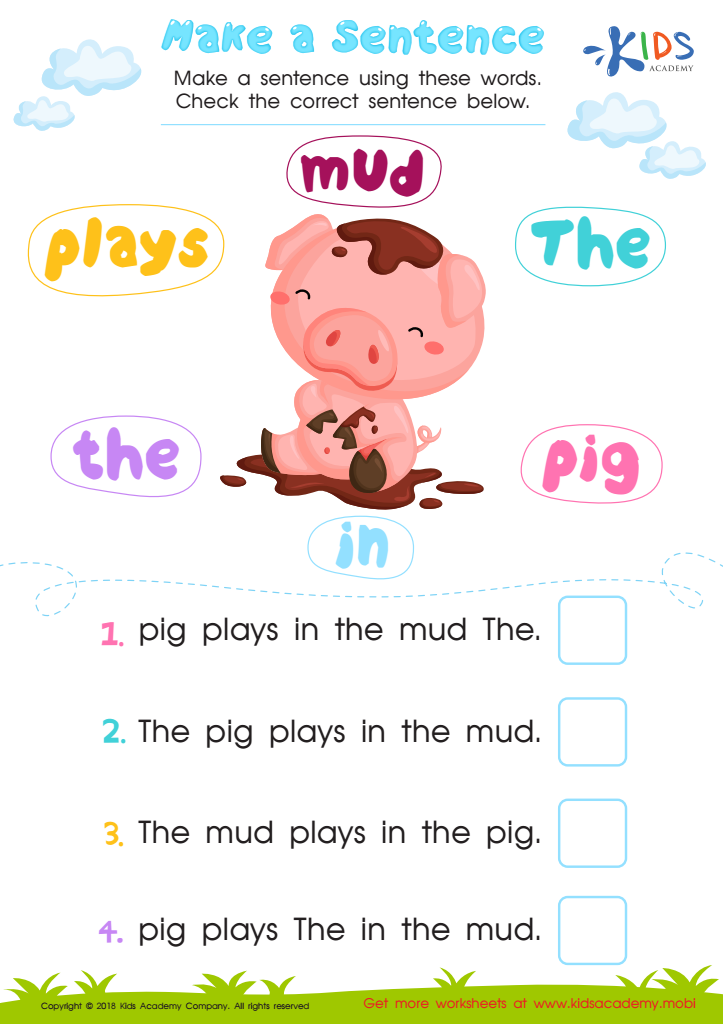

Assessment: Make a Sentence Worksheet
Writing activities for children ages 3-6 are essential for fostering early literacy skills. During these formative years, children develop foundational language abilities that pave the way for effective communication throughout their lives. Engaging in writing activities not only enhances fine motor skills as young learners practice letter formation and pencil grip, but also stimulates cognitive development through the organization of thoughts and ideas.
Parents and teachers should care about these activities because they promote creativity and self-expression. Writing allows children to share their thoughts and feelings, nurturing their confidence and individuality. Moreover, structured writing exercises can introduce basic grammar, vocabulary, and storytelling techniques, laying the groundwork for more advanced literacy skills.
Additionally, these activities can be tailored to individual learning styles, making them inclusive and adaptable to diverse classrooms. Incorporating fun and engaging writing prompts can keep young learners motivated and eager to participate.
Lastly, supporting writing development at an early age helps bridge the gap between spoken and written language, fostering smoother transitions into formal schooling. Overall, prioritizing writing activities in early childhood education is a vital investment in children’s lifelong learning and success.
 Assign to My Students
Assign to My Students





.jpg)












